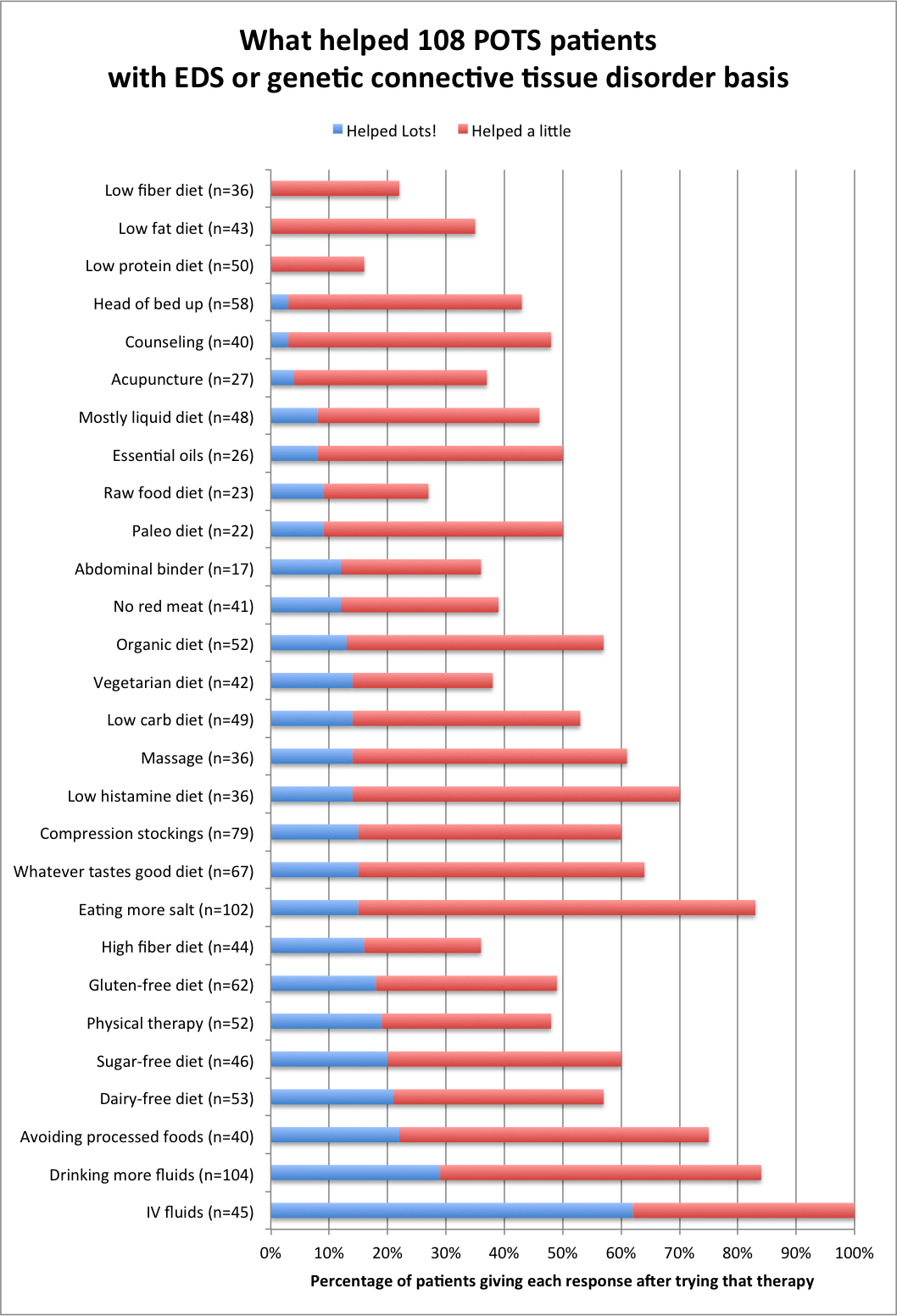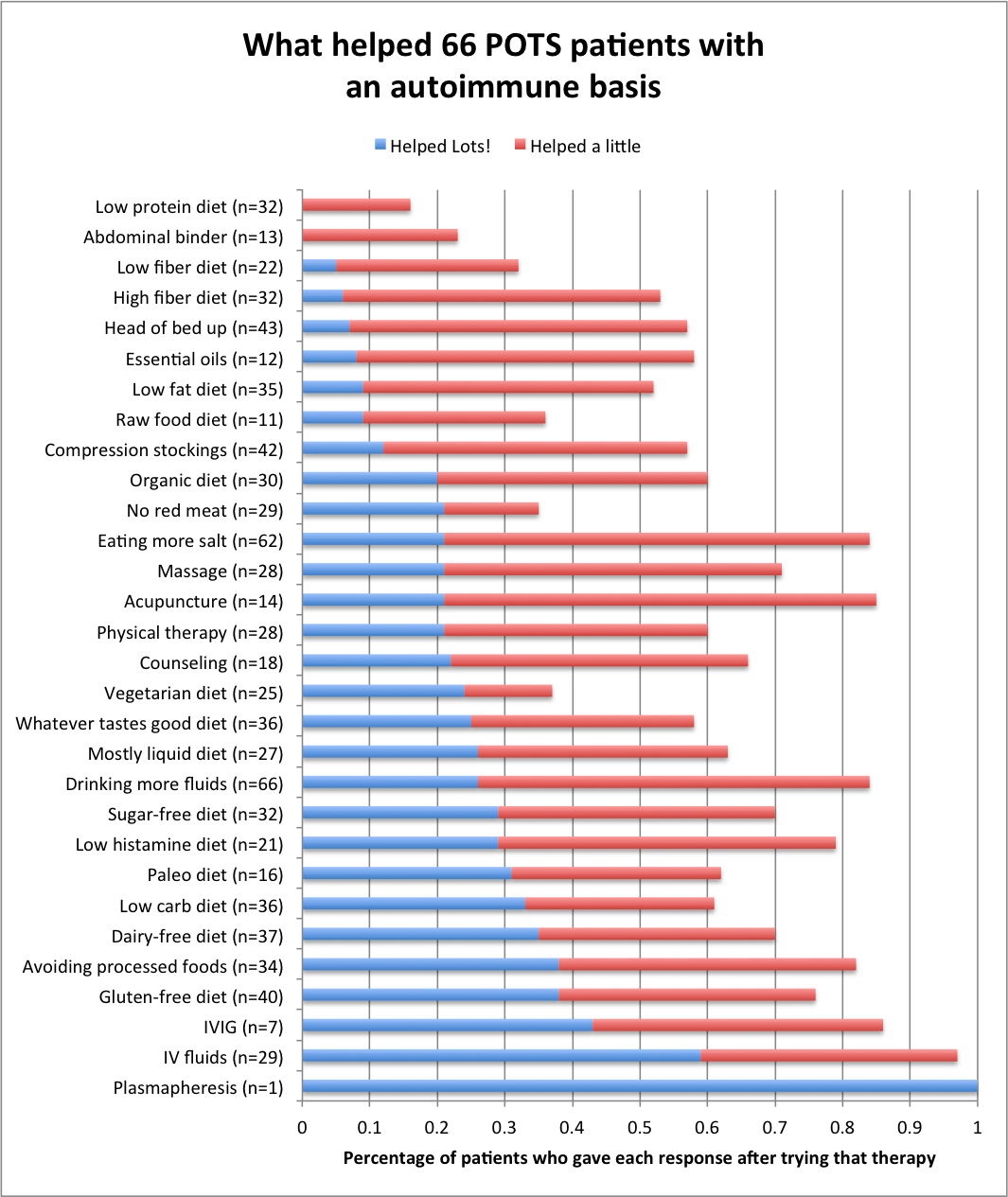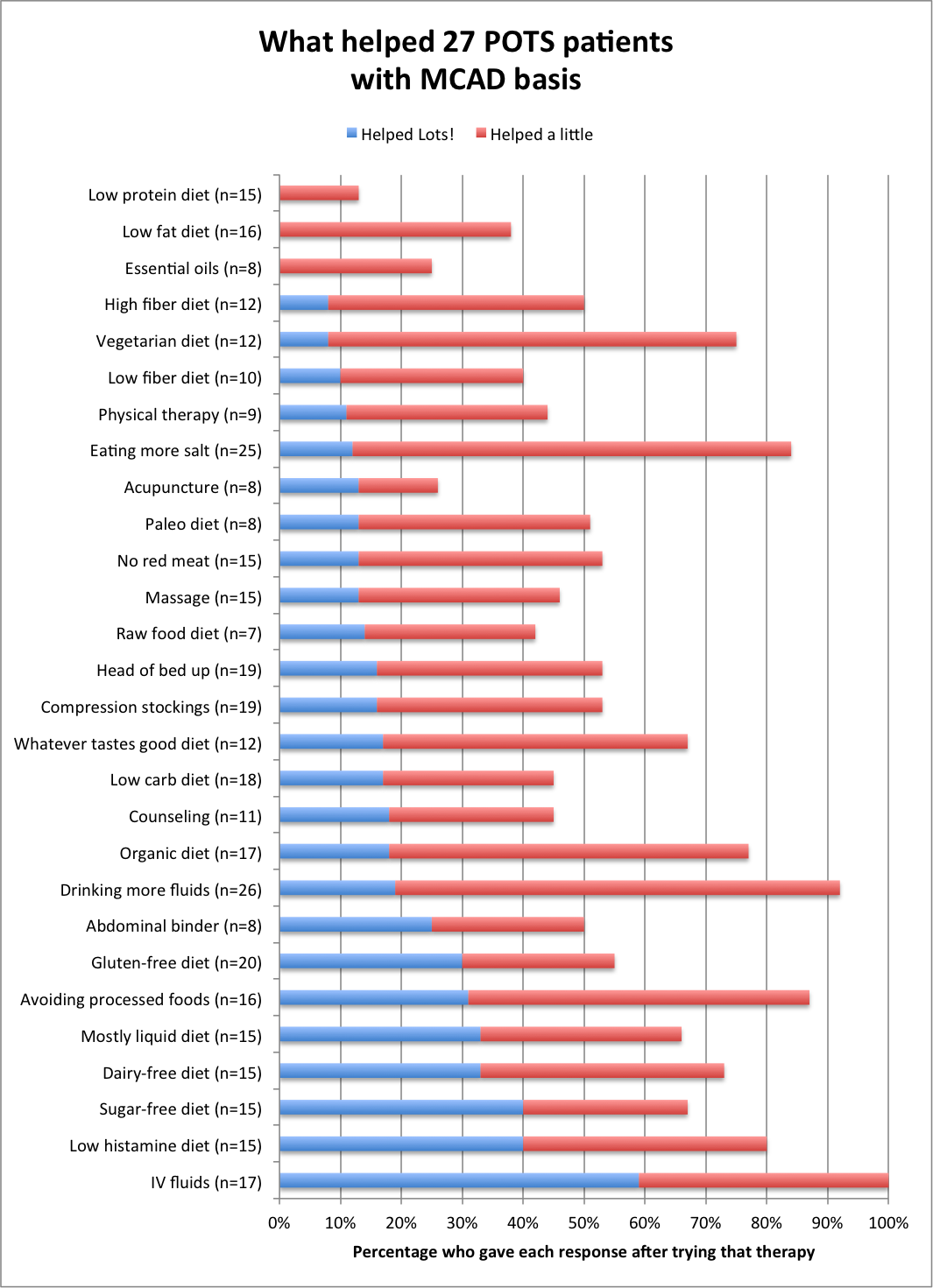What helped different groups of POTS patients?
In our earlier finding about "What Helped POTS" (found here) we listed dozens of therapies, along with their patient ratings of helpfulness in managing POTS. We also showed ratings for what made POTS worse. By popular demand, we have re-created the helpfulness chart for 3 separate groups, using only data from those POTS patients who reported certainty that their POTS had various contributing factors:
- genetic connective tissue disorder, like Ehlers-Danlos syndrome (EDS),
- autoimmune disorder, and
- mast cell activation disorder (MCAD).
(We also plan to create separate helpfulness charts for patients with other underlying factors, such as head injury, surgery, mitochondrial disorder, and Lyme disease, but currently we don't have enough participants in those groups.)
If a patient listed multiple underlying causes (e.g., both EDS and MCAD), they were included in both charts.
For each chart below, we list 28 various treatments, dietary approaches and lifestyle accommodations. The number (n) listed after each treatment indicates the number of patients who had tried it. Only patients who had tried the given treatment were then asked to rate its helpfulness in managing POTS. Answer choices were:
- Helps lots!
- Helps a little
- Doesn't help
- Made my POTS worse
We had 108 patients who listed genetic connective tissue disorder (like EDS) as an underlying factor, and here are their ratings of what helped:

We had 66 POTS patients who listed autoimmune disorder as an underlying factor, and here are their ratings of what helped:

Please keep in mind the sample size (n), which is very small in some cases. For example, we are only seeing one patient's response for plasmapheresis.
We had 27 POTS patients who listed MCAD as an underlying factor, and here are their ratings of what helped:

It's important to remember that the subset of POTS patients who tried each therapy may have had specific reasons to do so. In other words, the sample of patients who tried each therapy isn't necessarily representative of all POTS patients, and just because a therapy worked well for others doesn't mean it would work well for you. Don't experiment until you talk to your doctor about which therapies would be worth trying in your case.
We have 25+ more findings here, about many rarely-studied aspects of POTS. To receive occasional email updates on new findings, you can sign up on our homepage. Please tell us your thoughts via our contact page or learn more about us here Be well!
Tags
alternative therapies autoimmune dietary approaches therapies